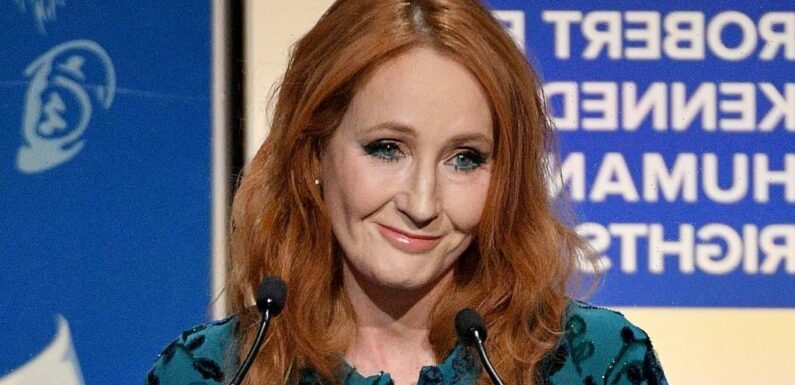
J.K. Rowling claims people have deeply misunderstood her position on transgender women — and the best-selling author says she’s not preoccupied with how the controversy will affect her legacy.
Rowling, speaking on the topic for the podcast “The Witch Trials of J.K. Rowling,” said she “never meant to upset anyone” with comments broadly seen as antagonistic toward trans women. About the reaction from fans that Rowling has “ruined” her legacy, she counters that people who express such sentiments “could not have misunderstood me more profoundly.”
“I do not walk around my house, thinking about my legacy,” she says in the first episode. “You know, what a pompous way to live your life walking around thinking, ‘What will my legacy be?’ Whatever, I’ll be dead. I care about now. I care about the living.”
“The Witch Trials of J.K. Rowling,” which debuted with the first two episodes Tuesday, is produced by the Free Press, the media company founded by Bari Weiss, a former op-ed writer for the New York Times. The podcast is hosted by Megan Phelps-Roper, who left the extremist Westboro Baptist Church in 2012 after 26 years.
At a high level, “The Witch Trials of J.K. Rowling” attempts to draw parallels between attacks on Rowling by far-right Christian groups over the Harry Potter books — as somehow harmfully promoting witchcraft — and more recent furor over Rowling’s statements about trans people. Phelps-Roper is looking for commonality between the intolerant right-wingers who wanted to ban and burn the Harry Potter books and trans activists who have threatened Rowling over her comments. “What is it about this woman and her work that has captured the ire of very different groups of people across time?” Phelps-Roper says in the intro to the premiere episode.
In 2000, there was a bomb threat against a bookstore where Rowling was holding a book signing. More recently, Rowling says in the podcast, “I have had direct threats of violence, and I have had people coming to my house where my kids live, and I’ve had my address posted online. I’ve had what the police, anyway, would regard as credible threats.”
Phelps-Roper interviewed Rowling at her home, a castle in Edinburgh, Scotland, and spends a good portion of the first two episodes of “The Witch Trials of J.K. Rowling” going over the history of Rowling’s inspiration for Harry Potter and recounting the cultural politics of the 1990s.
The podcast has already become a rallying point for Rowling’s defenders, including NYT columnist Pamela Paul, who opined that “nothing Rowling has said qualifies as transphobic.” According to Paul, Rowling is being attacked because “she has asserted the right to spaces for biological women only, such as domestic abuse shelters and sex-segregated prisons” and because Rowling believes “self-declared gender identity is insufficient” in determining a person’s legal gender status.
Rowling poured gasoline on the fire in June 2020, when she tweeted among other things, “If sex isn’t real, there’s no same-sex attraction. If sex isn’t real, the lived reality of women globally is erased.” Rowling also has suggested that trans women “retain male patterns of criminality,” which makes them likelier than cisgender women to physically or sexually assault someone in a women’s locker room or shelter.
Rowling’s comments about the transgender community have been criticized by actors from movies based on her books, including Daniel Radcliffe, Emma Watson, Rupert Grint and Eddie Redmayne, while Ralph Fiennes is among those who have defended the author.
Regarding the doxing and violent threats Rowling describes in the podcast (and highlighted by Paul), Slate’s Christina Cauterucci wrote that “a person’s crusade does not automatically grow in righteousness in direct proportion to the number of threats she receives. Sometimes, when a group of people use a word with negative connotations to describe a prominent person, prompting others to distance themselves from her work or her views, it’s not bullying, or a witch hunt. It could just be a rational, sensible response.”
“The Witch Trials of J.K. Rowling,” set to run seven episodes, is available on Spotify, Apple Podcasts and other audio platforms.
Read More About:
Source: Read Full Article